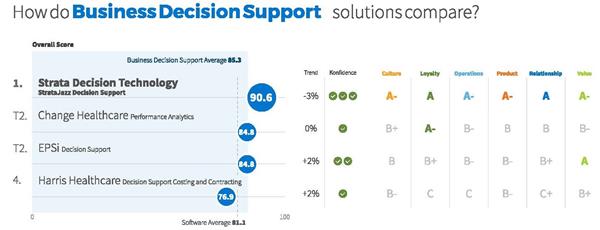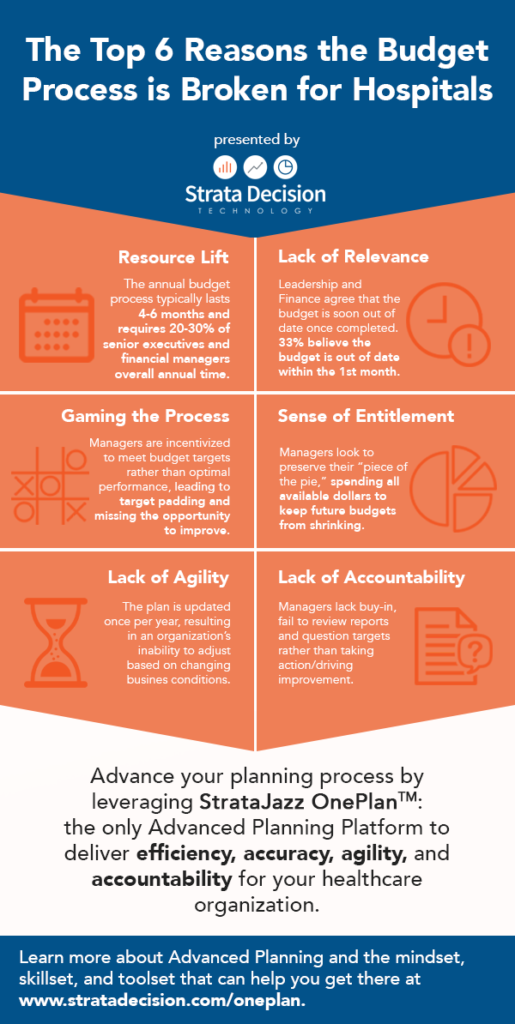CHICAGO–(BUSINESS WIRE)–Strata Decision Technology (Strata), a pioneer and leader in the development of cloud-based financial planning, analytics and performance tools for healthcare, today announced that it has reached a definitive agreement to acquire EPSi from Allscripts (NASDAQ: MDRX) for $365 million. EPSi is a leading provider of financial decision support and planning tools for hospitals and health systems.
“By bringing these two outstanding companies together, we believe that we can build one of the most important companies in helping to solve the biggest problem in healthcare – the cost of it,” said Dan Michelson, Chief Executive Officer of Strata. “Our focus will be to accelerate innovation to provide broader and deeper solutions to help our customers, deliver the highest service levels in the industry, and create the very best place to work in healthcare.”
Hospitals and healthcare delivery systems were already under significant financial pressure with margins rapidly declining over the last few years. COVID-19 has caused a significant increase in the cost of care coupled with major declines in both patient and procedure volume, creating what is seen as the biggest financial crisis in the history of healthcare. The combination of Strata and EPSi will bring healthcare providers a set of innovative solutions and services to help them better plan, analyze and perform in support of providing care in the communities that they serve.
“Strata is a world-class company that will provide both an ideal and permanent home for EPSi,” said Rick Poulton, Allscripts President and Chief Financial Officer. “This agreement is a triple win for EPSi customers and Allscripts shareholders as it allows us to efficiently recirculate capital, increase our focus on our core businesses, and bring our EPSi customers the benefit of continued investment under new and very strong ownership.”
The transaction is expected to close later this year, subject to regulatory approval and customary closing conditions. Allscripts has owned the EPSi business since it acquired Eclipsys, Inc. in 2010. Upon closing of the transaction, the EPSi customer base and associates will transition to Strata. The two companies will operate independently until the deal closes.
RBC Capital Markets, LLC served as Allscripts’ exclusive financial advisor in connection with the sale of EPSi and Zeigler served as financial advisor to EPSi management.
About Strata Decision Technology
Strata Decision Technology provides an innovative cloud-based financial analytics and performance platform that is used by healthcare providers for financial planning, decision support and continuous improvement. Founded in 1996, the Company’s customer base includes over 220 healthcare delivery systems. The Company’s StrataJazz® application is a single integrated software-as-a-service platform that includes modules for capital planning, continuous improvement, contract modeling, cost accounting, cost management, decision support, financial forecasting, management reporting, operational budgeting and performance improvement and strategic planning. The Company’s headquarters are in Chicago, IL. For more information, please visit www.stratadecision.com.
About Allscripts
Allscripts (NASDAQ: MDRX) is a leader in healthcare information technology solutions that advance clinical, financial and operational results. Our innovative solutions connect people, places and data across an Open, Connected Community of Health™. Connectivity empowers caregivers to make better decisions and deliver better care for healthier populations. To learn more, visit www.allscripts.com, Twitter, YouTube and It Takes A Community: The Allscripts Blog.
Contacts
Strata:
Lesley Weisnbacher
312.827.3379
[email protected]
Investors:
Stephen Shulstein
312-386-6735
[email protected]
Media:
Concetta Rasiarmos
312-447-2466
[email protected]
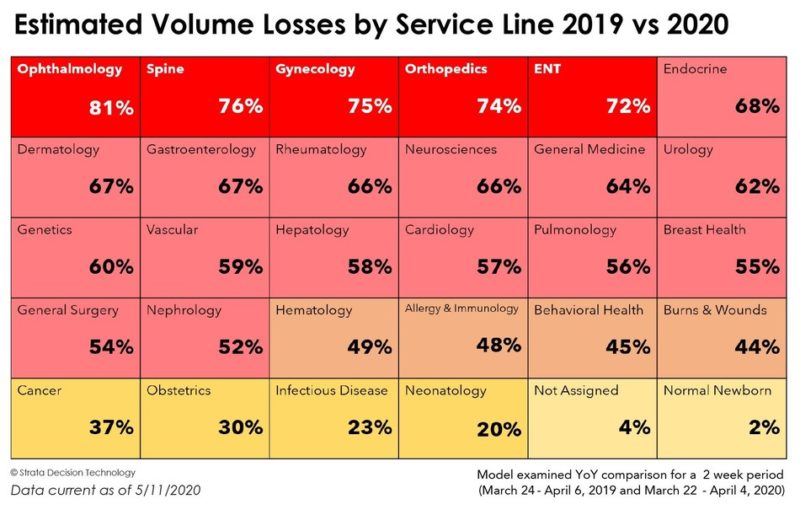
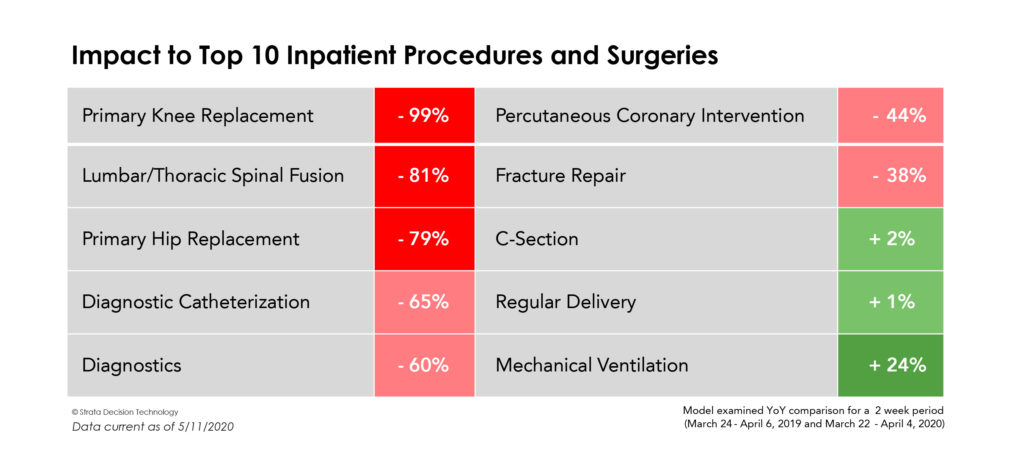
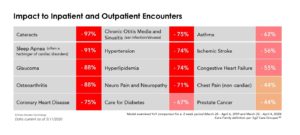 Among the findings are significant recent reductions in patient encounters (both inpatient and outpatient) for so-called elective care that is crucial to maintaining the health of millions of Americans. Drops in patient volume are shown below for several of the 225 Clinical Care Family™ definitions determined using the Sg2 Care Grouper™.
Among the findings are significant recent reductions in patient encounters (both inpatient and outpatient) for so-called elective care that is crucial to maintaining the health of millions of Americans. Drops in patient volume are shown below for several of the 225 Clinical Care Family™ definitions determined using the Sg2 Care Grouper™.